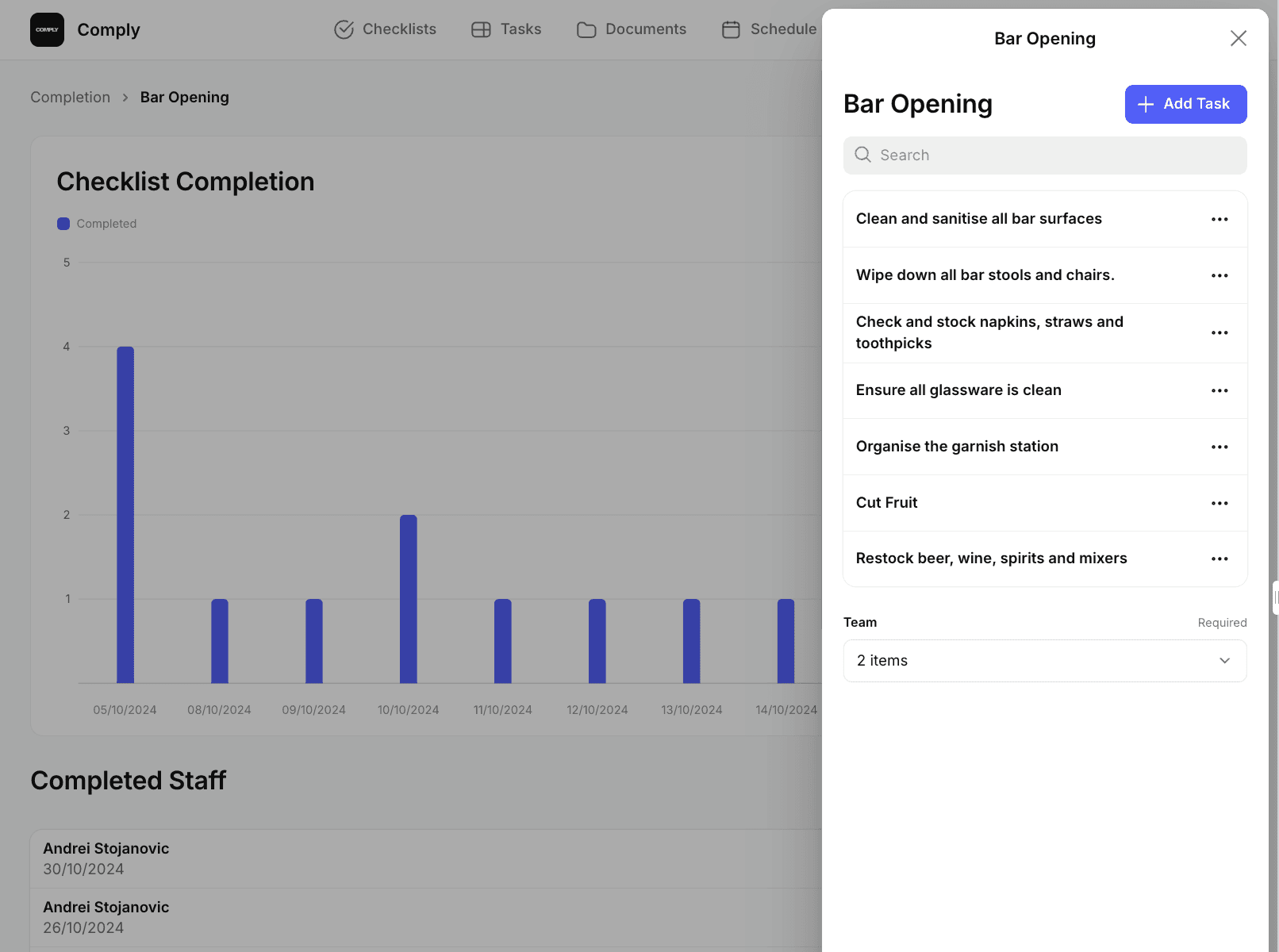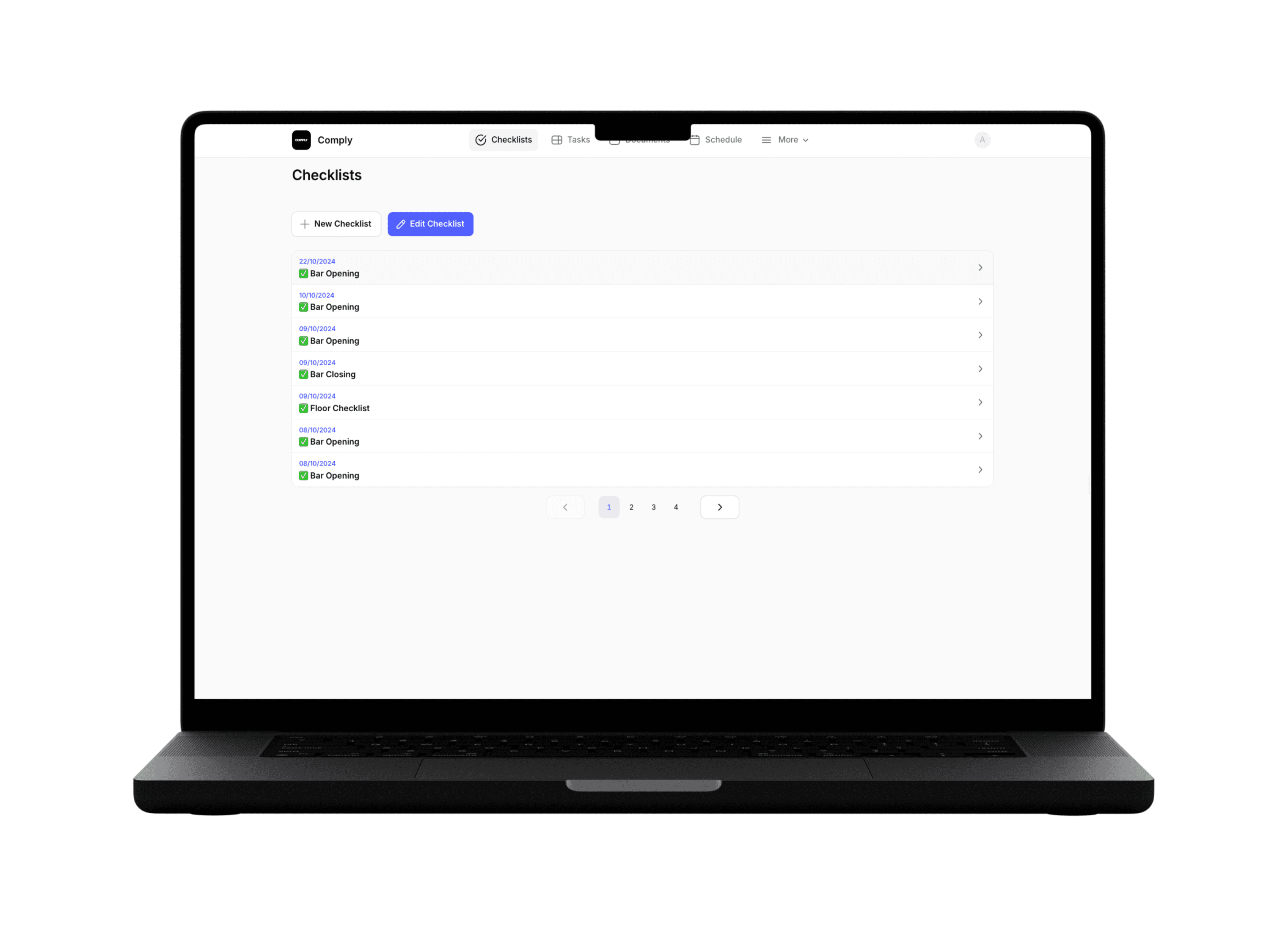What Is a Compliance Management System and Why Does Your Restaurant Need One?
Nov 21, 2024

Running a restaurant involves juggling countless responsibilities, from food preparation and customer service to staff management and regulatory compliance. Among these, compliance is non-negotiable. Health codes, safety standards, and labour laws can quickly overwhelm even the most organized managers.
This is where a Compliance Management System (CMS) steps in. Designed to simplify how businesses meet legal, regulatory, and operational standards, a CMS helps restaurants operate smoothly while minimizing risks. But what exactly is a CMS, and why is it so critical for your restaurant’s success? Let’s dive in.
What Is a Compliance Management System?
A Compliance Management System (CMS) is a structured framework that ensures an organization adheres to laws, regulations, and internal policies. In the context of a restaurant, it encompasses tools and processes that help managers oversee compliance with food safety standards, workplace regulations, fire safety protocols, and more.
A robust CMS includes:
Policies and Procedures: Clear guidelines for staff to follow in critical areas, such as hygiene, safety, and customer service.
Monitoring Tools: Systems to track compliance, such as checklists, reminders for inspections, or document storage for certifications.
Training Programs: Ongoing education for staff to ensure everyone understands and adheres to compliance requirements.
Audit and Review Systems: Regular evaluations to identify gaps and ensure all standards are consistently met.
Rather than leaving compliance up to chance, a CMS provides a systematic way to track, manage, and enforce it across all aspects of your operation.
Why Is a Compliance Management System Important?
In a high-stakes industry like hospitality, the consequences of non-compliance can be severe. Fines, temporary closures, and reputational damage are just the beginning. A CMS ensures that your restaurant:
Reduces Risk: By proactively managing compliance, you avoid costly fines, lawsuits, and operational disruptions caused by non-compliance.
Improves Efficiency: Automating processes like inspections, certifications, and staff training saves time and reduces human error.
Protects Customers and Staff: Ensuring health and safety compliance creates a secure environment for your team and guests.
Builds Trust: A compliant operation reassures customers and stakeholders that your restaurant is reliable and trustworthy.
How Does a Compliance Management System Work?
Implementing a CMS involves several interconnected components:
Setting Standards: Define the rules, regulations, and policies your restaurant must follow. This could include health codes, employee rights, and fire safety requirements.
Organizing Processes: Create workflows to ensure compliance tasks are completed. For example, a CMS might schedule monthly fire extinguisher checks or prompt managers to renew licenses before expiration.
Tracking and Monitoring: Use tools like digital checklists, document storage systems, and automated reminders to keep everyone on track.
Regular Audits: Perform periodic checks to evaluate compliance and identify areas for improvement.
Continuous Training: Keep staff updated on changing regulations and best practices through ongoing education and assessments.
Benefits of a Compliance Management System for Restaurants
A CMS offers several advantages to restaurants, making it easier to stay compliant while improving overall efficiency:
Simplified Operations: A CMS centralizes all compliance-related tasks, making them easier to manage and monitor.
Real-Time Insights: Digital tools provide instant access to compliance data, enabling you to address potential issues before they escalate.
Enhanced Accountability: With clear roles and responsibilities, every staff member knows what’s expected of them.
Peace of Mind: A CMS reduces stress by ensuring that compliance isn’t overlooked, even during busy periods.
Examples of Compliance Areas in Restaurants
Compliance management in restaurants covers various critical areas, including:
Food Safety: Adhering to local health codes for food storage, preparation, and handling.
Fire Safety: Maintaining fire extinguishers, exit signs, and emergency plans.
Labour Laws: Ensuring fair pay, appropriate working hours, and safe working conditions for employees.
Alcohol Licensing: Complying with regulations around serving and selling alcohol.
Implementing a Compliance Management System in Your Restaurant
If you’re ready to implement a CMS in your restaurant, here’s how to get started:
Assess Your Needs: Identify the compliance requirements relevant to your restaurant, including local laws and industry standards.
Choose the Right Tools: Invest in software or platforms that automate compliance tracking, like Bevanda’s Comply app, which streamlines checklists, reminders, and document management.
Train Your Staff: Ensure everyone understands how to use the system and why compliance is critical.
Monitor and Adjust: Regularly review your CMS’s effectiveness and make adjustments as needed to stay ahead of changing regulations.
Conclusion
A Compliance Management System is more than just a safeguard—it’s a strategic tool that helps restaurants operate more efficiently, reduce risk, and enhance customer trust. By simplifying how compliance is managed, a CMS allows you to focus on what truly matters: delivering exceptional dining experiences.
Whether you’re managing a single venue or a multi-location operation, implementing a CMS can transform how you approach compliance, ensuring your restaurant’s long-term success.



